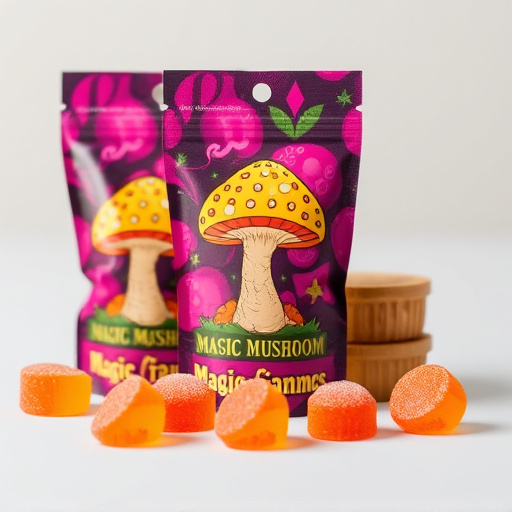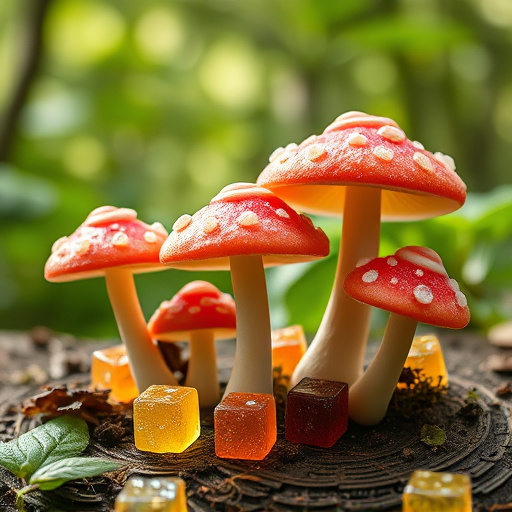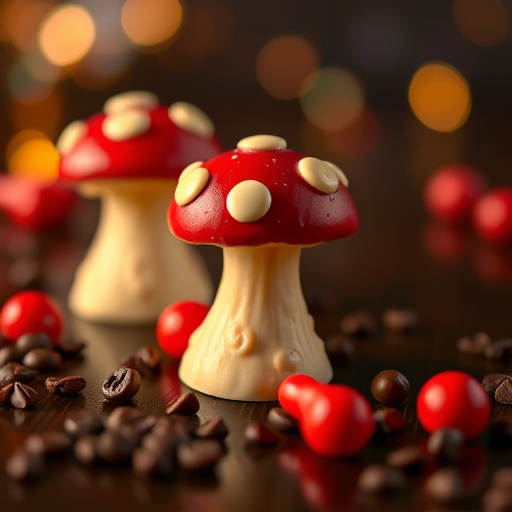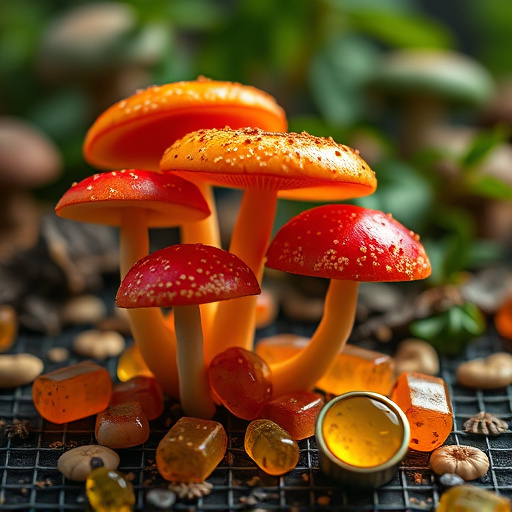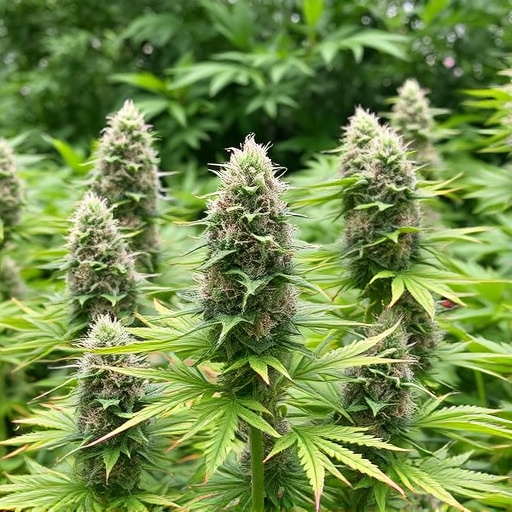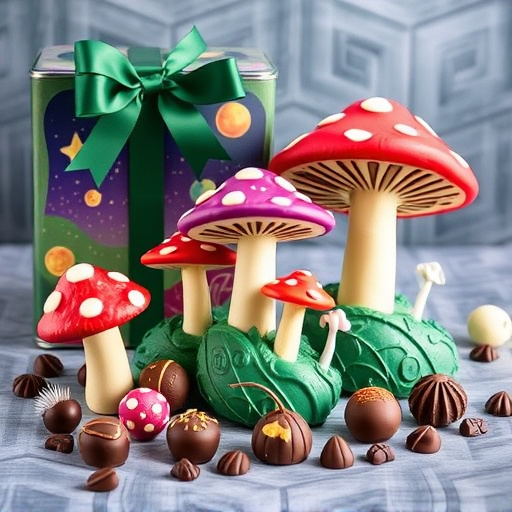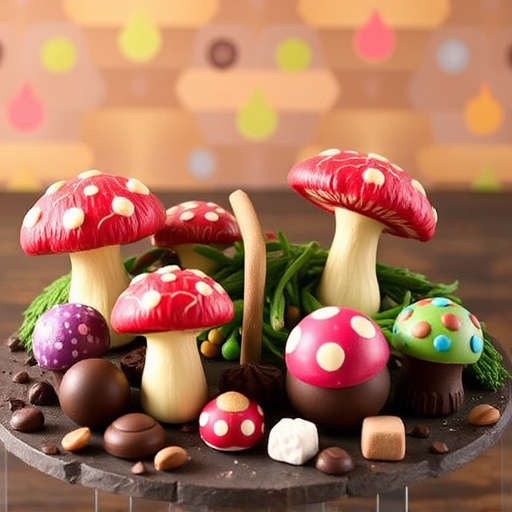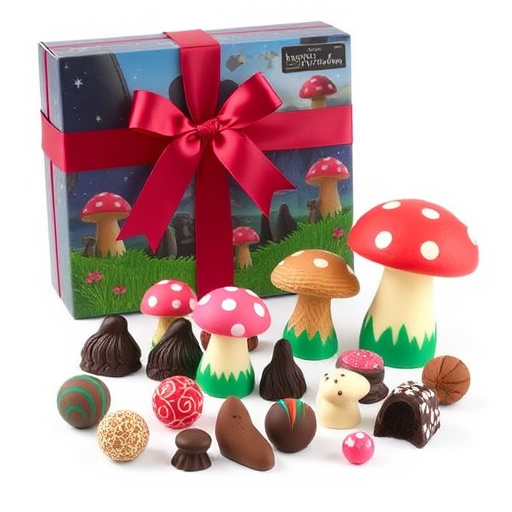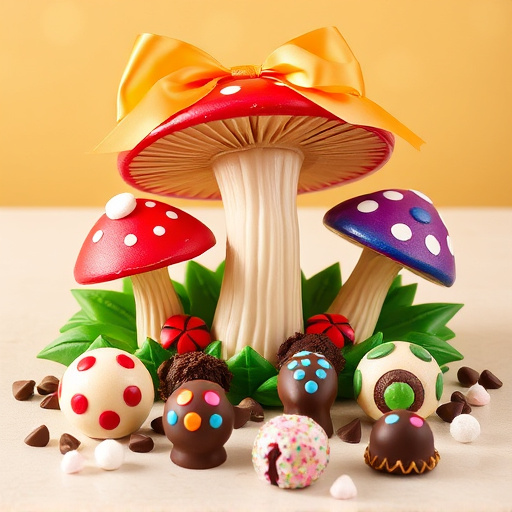Magic mushrooms (Psilocybin) intrigue both folklore and science for their psychological effects, primarily due to psilocybin and psilocin, which interact with serotonin receptors. This interaction enhances neural connectivity, fostering creativity and open-mindedness. Studies show potential therapeutic benefits in treating depression, anxiety, and end-of-life fear by affecting specific neural pathways. Magic mushroom chocolates, administered in controlled settings, offer these advantages while appealing as an indulgent treat. Research suggests they could help manage stress, anxiety, depression, and even neurological conditions like PTSD or Parkinson's disease, revolutionizing mental health treatment through their unique interaction with neural connectivity.
“Unveiling the captivating world of High-Potency Magic Mushroom Chocolates, this article takes you on a journey through the science, creation, and responsible consumption of these unique treats. We explore the neural connectivity potential of magic mushrooms, delving into their active compounds and interactions with brain receptors. Learn about the meticulous process of infusing these compounds into chocolate while maintaining potency and flavor.
Discover expert tips for creating balanced, potent chocolates and guidelines for safe consumption, ensuring a mindful experience with Magic Mushroom Chocolates and their promise of enhanced neural connectivity.”
- The Science Behind Magic Mushrooms and Their Effects on the Brain
- – Exploring the active compounds in magic mushrooms and their interaction with neural receptors.
- – Discussing the potential therapeutic benefits for mental health and neurological conditions.
The Science Behind Magic Mushrooms and Their Effects on the Brain

Magic mushrooms, scientifically known as Psilocybin mushrooms, have been a subject of interest in both folklore and scientific research for their unique psychological effects. These fungi contain psilocybin and psilocin, compounds that are known to interact with the brain’s serotonin receptors. When consumed, these compounds can alter perception, mood, and cognitive function, leading to experiences often described as mystical or spiritual.
The impact of magic mushrooms on neural connectivity is a fascinating aspect of their scientific study. Research suggests that psilocybin may enhance creativity and open-mindedness by promoting unusual patterns of brain activity. It can temporarily disrupt the normal functioning of certain neural networks, leading to new connections and insights. This disruption might be beneficial in therapeutic settings, where it has shown promise in treating depression, anxiety, and end-of-life fear. By affecting these neural pathways, magic mushrooms have the potential to offer unique perspectives and experiences that could contribute to personal growth and a deeper understanding of consciousness.
– Exploring the active compounds in magic mushrooms and their interaction with neural receptors.
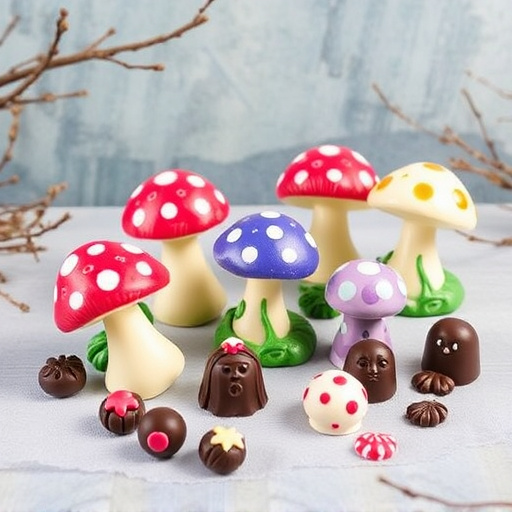
Magic mushrooms, or psychotropic fungi, contain unique compounds that have fascinated scientists for decades. One of their primary active ingredients is psilocybin, a molecule known for its ability to interact with neural receptors in the brain. When consumed, psilocybin converts into psilocin, which binds to serotonin receptors, particularly 5-HT2A receptors, leading to altered perceptions and enhanced neural connectivity.
This interaction isn’t merely recreational; it offers potential therapeutic benefits. Research suggests that magic mushroom chocolates, when administered in controlled settings, can facilitate a deeper understanding of consciousness, promote creative thinking, and aid in treating mental health conditions like depression and anxiety by improving mood and cognitive function. The key lies in the delicate balance between the active compounds and neural connectivity, which can lead to profound personal insights and experiences.
– Discussing the potential therapeutic benefits for mental health and neurological conditions.

Magic mushroom chocolates, while sounding like a delightful treat, hold promise beyond their indulgent appeal. The active compounds within magic mushrooms, known for their psychotropic effects, have shown potential in improving mental health and managing neurological conditions. Research suggests that these compounds can enhance neural connectivity, leading to positive outcomes in areas such as stress reduction, anxiety management, and even alleviating symptoms of depression.
The impact on neural connectivity is particularly intriguing. Magic mushrooms are believed to stimulate the release of neurotransmitters and promote synaptic plasticity, which is crucial for forming new neural pathways. This enhanced connectivity could potentially help individuals suffering from conditions like PTSD or Parkinson’s disease, where neurological impairments affect daily functioning. As research continues to explore these compounds, magic mushroom chocolates may emerge as a novel approach—a delicious way to support mental well-being and explore the therapeutic potential of psychedelic-assisted therapy.
In conclusion, while the scientific exploration of magic mushrooms reveals promising potential for therapeutic applications, the creation of high-potency magic mushroom chocolates requires careful consideration of both dosage and safety. Understanding the intricate dance between these compounds and our neural connectivity is key to unlocking their benefits while mitigating risks. As research progresses, we may see innovative treatments emerge, offering a unique and natural approach to managing mental health and neurological conditions.
